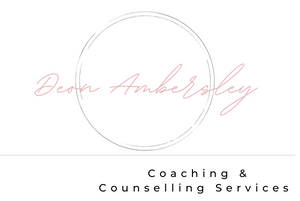Coaching vs.Therapy: What is The Best Choice?
Have you ever wondered what the difference is between coaching and therapy? Coaching vs. Therapy can seem like a very big choice. Maybe you’ve considered both for a while, but haven’t been quite sure which service is the best for you. While both can be incredibly helpful in facilitating personal growth and development; they are distinct practices with different goals and approaches. This can make it very very confusing when deciding which practice is the right choice for you.
In this article, I’ll discuss the five main areas where coaching and therapy services differ, to give you a clearer idea of which option is the right choice for you, so you can confidently start your self-development journey.

Top 5 Differences Between Coaching and Therapy
1. Focus
Therapy and coaching are two different approaches to personal growth and development. Therapy generally focuses on healing and addressing past traumas or issues that may be holding a person back from living a fulfilling life. It also looks at developing the skills to cope with various issues. On the other hand, while there are elements of skill development, coaching is more future-oriented and focuses on helping a person achieve their goals and aspirations, by identifying and addressing what blocks them. If we think in terms of perspective. Therapy would be focused on what has occurred in the past or troubling the individual in the present, while a coach is more focused on the individual’s future self. Thus, helping them become the person they want to be.
2. Timeframe
Therapy typically involves a longer-term commitment, with sessions often lasting several months or even years. This is because therapy is focused on addressing deeper psychological issues and helping individuals work through them. The experience of going through therapy is a process. While there may be solid goals an individual is looking to achieve, it is difficult to put a concrete timeline on that process. A therapist can give you an idea on number of sessions, however, each individual and their situation is unique so it is difficult to create a timeline. You may uncover things in the therapeutic process which may extend the healing journey.
On the other hand, coaching is often more goal-oriented and focused on achieving specific outcomes in a shorter timeframe, such as a few weeks or months, and can be helpful for those who are looking for more immediate solutions to their challenges. The goals of coaching are much more specific and formulaic, so coaching often has a very specific beginning and end.
3. Mental State
Typically, therapy is geared toward those who are struggling with mental health issues, or emotional challenges, or are in crisis. Clients tend to seek a therapist if they are struggling with issues such as anxiety, depression or experiencing problems in their relationships, etc. Often when individuals seek therapy, there is a presenting problem that is creating distress that they would like to process and work through. In contrast, coaching is more focused on individuals who are typically functioning well and looking to enhance their lives and achieve their goals. While coaching clients are seeking change, they are often not in any form of distress.
Coaching clients tend to have a specific goal in mind that they are unable to achieve by themselves, and are seeking a coach’s guidance to achieve it, not necessarily learning more about themselves or their situation. Someone may seek a coach if they are feeling stuck or confused in their life, or there is a specific goal they are trying to achieve, such as weight loss or starting a business, and they need some guidance along the way. The reasons someone may seek a life coach are numerous, but ultimately they want to take action to make improvements.
4. Approach
Coaching is proactive and involves creating strategies for success, while therapy is more reactive and focuses on resolving emotional or psychological issues. Therapy often involves exploring past experiences and traumas, developing coping strategies, and working through negative thought patterns. Therapy is quite good if you are also seeking a deeper understanding of yourself or your situation. On the other hand, a life coach helps clients create action plans, develop new skills, and hold themselves accountable for making progress toward their goals. Coaching is often focused on getting clients past the “thinking stage” and moving them into action. Helping them develop the insight necessary to move forward.
5. Feedback
Coaching provides feedback, guidance, and accountability, while therapy provides a safe, non-judgmental space to explore and process emotions and experiences. The feedback you receive from your therapist is typically more reflective and introspective. The therapist may offer insights and observations to help you gain a deeper understanding of yourself and your patterns of behavior. Coaches, however, may offer suggestions or strategies to help you overcome obstacles and make progress toward your goals. Additionally, coaching may be helpful in identifying those things which keep you stuck, and how to move past it, however, may not get into why the issue has arisen in the first place.

Final Thoughts
Coaching and Therapy are both equally powerful tools for self-development. So, coahing vs therapy can feel like a big choice. Ultimately, the decision to pursue therapy or life coaching should be based on your individual needs and goals. The interesting thing you don’t necessarily have to do one or the other, you can do both as they each have an important function in the change process. They are both highly valuable. I would suggest considering:
What is it that I what to achieve?
What is the problem that I would like solved?
If the issue is historical in nature, therapy may be useful, however, if there is a goal you have for yourself, coaching may be a better option. If you’re still unsure about which option is right for you, don’t hesitate to reach out to me for guidance and advice. I offer no charge discovery calls and consultations to ensure that you’ve found the service right for you.
Just remember, seeking help is a sign of strength and one which can have a great positive impact on who you are and what you do. Thus, it is always important to remember that anything you to do take care of yourself will always be the right choice. Check out my services page to learn more on how I can help you along your journey.

